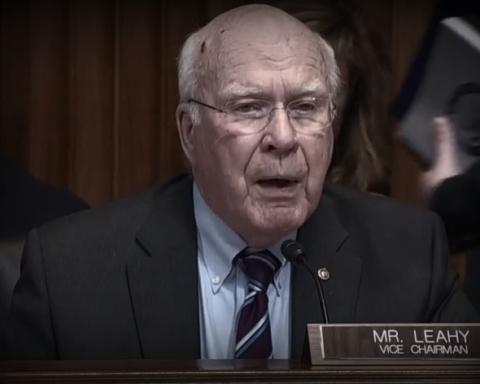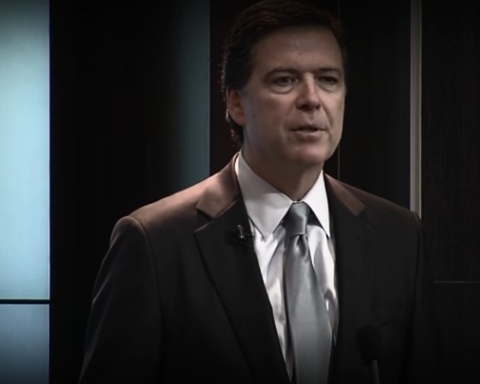A government watchdog threw shade at the Department of Energy over its plans to clean up the Hanford nuclear site – home to one of the biggest radioactive messes in the world.
The Government Accountability Office said on Tuesday that the DOE’s proposal to clean up the 500 billion gallons of waste produced by the Washington-based facility is riddled with flaws.
That refuse is stored at the Manhattan Project-built center in 177 underground tanks – many of which are now leaking.
The Department’s plan is to eventually empty the oozing tanks by building an on-side vitrification plant to turn the waste into glass. The DOE has already spent $40 billion on the project, and is expected to cough up an additional $110 billion to finish the job by 2047.
The entire effort, however, is in jeopardy, according to the GAO, because the department failed to make plans for future leaks—an increasingly likely possibility as delays in treatment plant construction force storage tanks to hold waste longer than intended. Most of the tanks currently storing radioactive material have already been in operation for more than seven years beyond their decommission date.
Beginning in the 1940’s, nearly 150 single-shelled tanks (SST) were built at Hanford to store waste–a byproduct created in the manufacture of nuclear weapons. The DOE later found that as many as 61 of these tanks were leaking up to more than one million gallons of waste into the ground. In the 1980’s, the department built 28 double-shelled tanks (DST), and transferred waste to the new vessels. Then in 2012, a leak was discovered in one of the DSTs–caused, the department found, by a design-flaw shared by 12 of the other second-generation containers.
The GAO said that until the Energy Department gathers more information, a process that involves an independent assessment that might not be completed for months, “DOE cannot be sure how long its DSTs can safely store waste.”
Even assuming most of the DSTs are safe, the GAO identified another storage problem as older SSTs become increasingly unreliable. Lack of additional temporary storage space is “constraining DOE’s ability to respond to potential future leaks and protect human health and the environment,” GAO warned. Despite that, the department has no plans to build additional tanks.
All of these problems heap pressure on the department, in light of ongoing delays in the building of the waste treatment plant (WTP) caused by “multiple technical challenges in the design and construction” of the facility. The GAO has long bemoaned the stalling of the construction, citing a December 2012 report on the matter in its most recent assessment.
“These delays could affect DOE’s ability to manage the waste in the tanks,” the office said.
Summing up the effort, the GAO said that “the overall cleanup mission will continue to depend on the integrity of the DSTs” – a capability the watchdog described as “unknown.”
The inability of Hanford to deal with its problems has allegedly been exacerbated by whistleblower retaliation not noted by the GAO in its latest published investigation. In 2013, employees of the contractor in charge of building the WTP came forward with concerns about its design and safety. Donna Busche and Dr. Walter Tamosaitis said they were fired from their jobs after speaking out.
In March, lawmakers on a Senate subcommittee heard from the whistleblowers and the contractors. Sen. Ed Markey (D-Mass.) submitted a statement for the record saying the “safety issues that Dr. Tamosaitis and Ms. Busche raised have all been independently validated.”
“If the Department takes no action to halt these retaliatory actions, hold those responsible for them accountable, and limit the reimbursement of contractors’ legal fees in these cases, its efforts to improve safety culture at WTP and throughout the DOE complex will, quite simply lack all credibility,” Markey stated.
In October, a DOE inspector general report concluded it was unable to make a determination of whistleblower retaliation because the contractors, URS and Bechtel, refused to hand over relevant documents. The results of another Department of Labor investigation into the matter are still pending.
*A previous version of this article misstated the location of the Hanford site. It’s been corrected.





